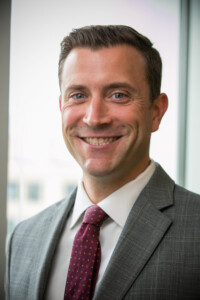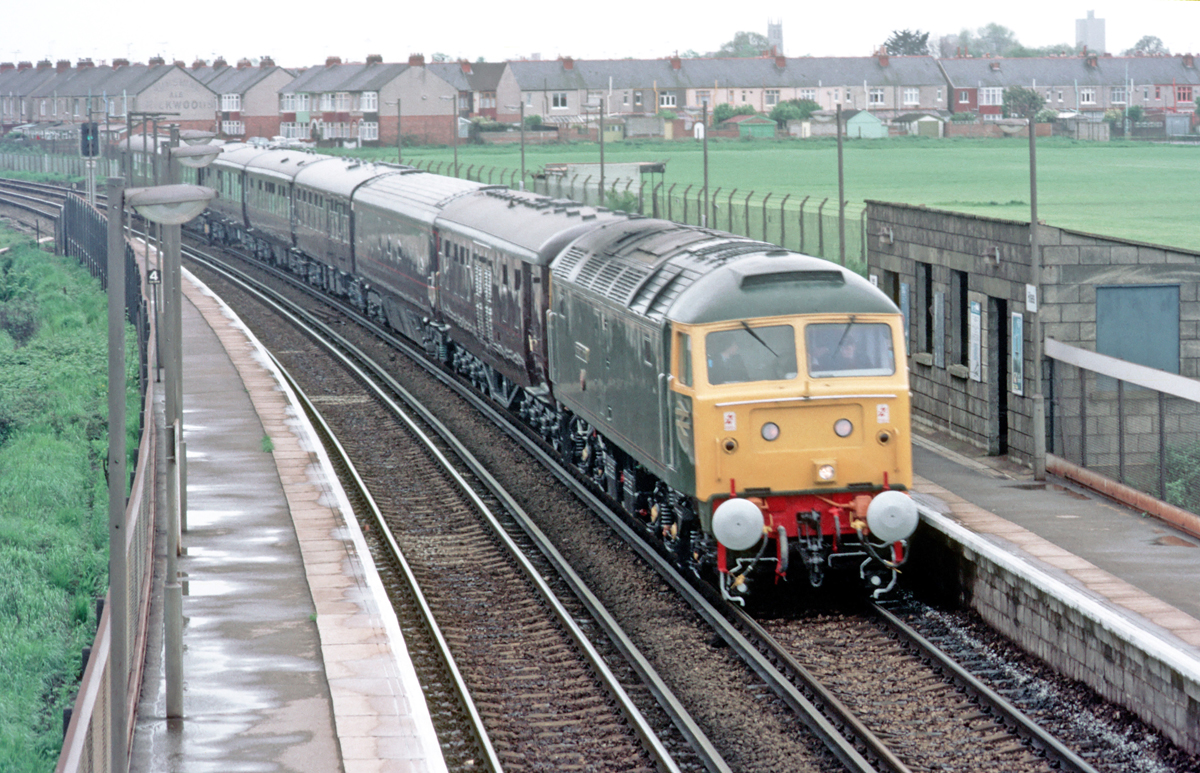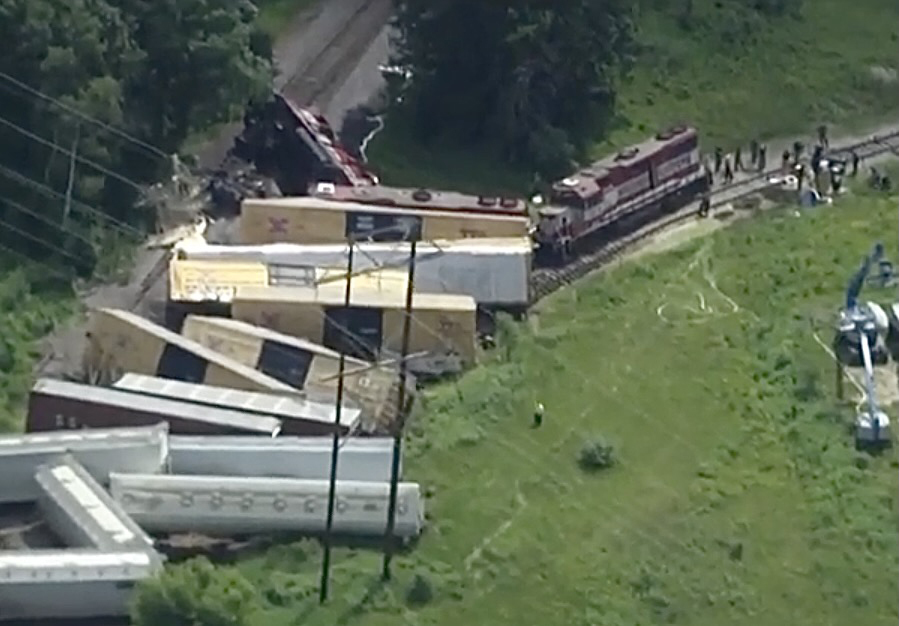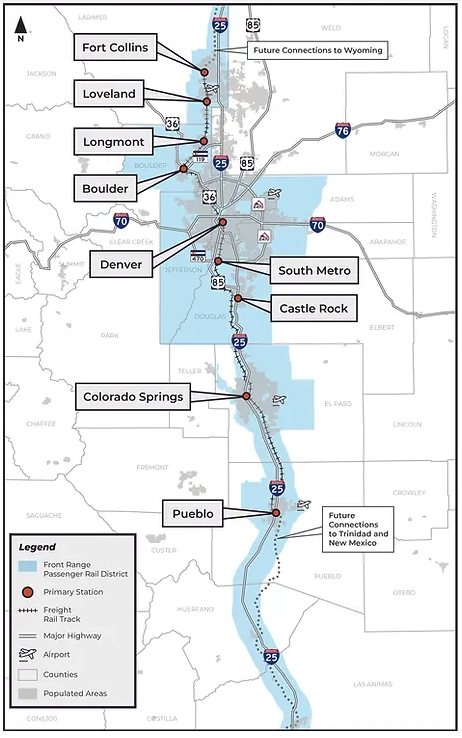WASHINGTON — All seven Class I railroads will join a Federal Railroad Administration voluntary safety reporting program at the urging of Transportation Secretary Pete Buttigieg.
In the wake of the disastrous Feb. 3 Norfolk Southern derailment in East Palestine, Ohio, Buttigieg wrote the CEOs of the seven major systems on Monday and asked them to join the FRA’s Confidential Close Call Reporting System, which allows workers to report safety issues without fear of reprisal. He wanted a reply by Friday.

Association of American Railroads CEO Ian Jefferies wrote to Buttigieg today to inform him all of the big railroads would join the program, which is dubbed C3RS for short.
“The industry absolutely shares your commitment to establishing effective mechanisms to help prevent future accidents like the derailment in East Palestine,” Jefferies wrote.
Amtrak and many commuter agencies and short line railroads participate. Although all of the Class I railroads have their own similar programs, none had agreed to participate in the FRA program.
“The railroads value receiving this type of close call information in a timely manner because it allows them to act quickly and proactively to address safety issues before they lead to an accident,” Jefferies wrote. “The Class I railroads expect to continue to operate these internal confidential reporting programs in addition to their voluntary participation in C3RS.”
Some of the Class I systems had dropped out of the FRA program because they viewed it as less effective than their own anonymous safety reporting efforts.
“We want to work with FRA to make the C3RS program better and more effective,” Jefferies wrote. “In that spirit, we are identifying certain aspects of the current FRA program that have historically led to railroads declining to participate in favor of their own internal programs. We believe these matters can and should be improved.”
Specifically, AAR wants FRA to improve the quality and speed of reporting, ensure that reports are kept confidential, take steps to prevent employee misuse of the program, and share information in a more timely manner.
The Department of Transportation is seeking to make participation in the close call program mandatory as part of a broader push on rail safety in response to the East Palestine derailment.
CSX Transportation, Norfolk Southern, and Union Pacific issued statements regarding their decision to join the close call program.
“CSX is fully committed to a positive employee experience, and that includes ensuring every employee feels safe in our work environment,” sJoe Hinrichs, CSX President and Chief Executive Officer. “Like every aspect of our ONE CSX culture, our focus on safe behaviors must be shared by all employees. Across our entire network, we are continually delivering coaching to ensure we are protecting ourselves, our teammates and our neighbors; complying with laws and regulations; and speaking up about safety concerns. The safety of our employees and the communities we serve will always be our top priority.”
CSX already has multiple ways employees can anonymously report safety concerns.
“At Norfolk Southern, we encourage our railroaders to speak up if they see something that is unsafe. It’s through their daily work and coaching of their team members that we become a safer railroad. Joining the FRA’s Confidential Close Call Reporting System marks another step we are taking to further our commitment to safety at Norfolk Southern and throughout our industry,” NS CEO Alan Shaw said.
NS has its own Close Call Experience Program that encourages employees to report instances they consider to be close calls confidentially through an online portal.
In a tweet, UP said it “is proud to join the FRA’s close-call reporting program, enhancing the already robust opportunities to anonymously report concerns. As the original participant in the FRA’s 2007 pilot, nothing is more important than the safety of employees, customers & the communities we serve.”
Note: Updated at 1:05 p.m. Central with railroad statements.













The ability of a safety department to communicate with employees honestly without complications goes a long way to maintaining a safe environment.
The trucking company I worked for had such policies backed by strong safety directors.
In some cases it created awkward situations in litigation. On others it prevented a problem from getting out of hand(counterfeit bolts and pins in the fifth wheel, amongst others).
The only thing worse than regulation is no regulation. IMO that is what the RRs have been getting almost no regulation. Also, able to operate as a monopoly in their service area.
A company owned and maintained system is an invitation to bury or deny the existence of problems. It invites retribution against whistle-blowers.
Why does Mayo Pete think a “voluntary” program is preferable to mandatory system? The class 1s and their lobbyists will wait until the smoke blows over (pun intended) to either gut or drop participation.
Buttigieg knows even less about transportation and rail than Biden’s latest pick to head up the FAA knows about air travel and aeronautics.
What constitutes a close call? A FRA manual will probably be many many pages.
I can see train crews reporting passing another train will be considered a close call. Especially since a trainman was recently killed in such an incident.
The aviation safety reported system has over time fixed hundreds of minor to major problems. I mainly am aware of problems of air traffic control shortfalls. Glad to see it finally on RRs. However, it will only work as well as the weakest link of participants. If RRs only give it lip service ———–
Mr. Kneibel, before you trash this initiative give it a chance and let’s see how things develop.
Smoke and mirrors, nothing else.
Where I worked, Close Call was a copycat corporate-speak buzzword. But I’d not make the same accusation to a transportation corporation with an active safety office.